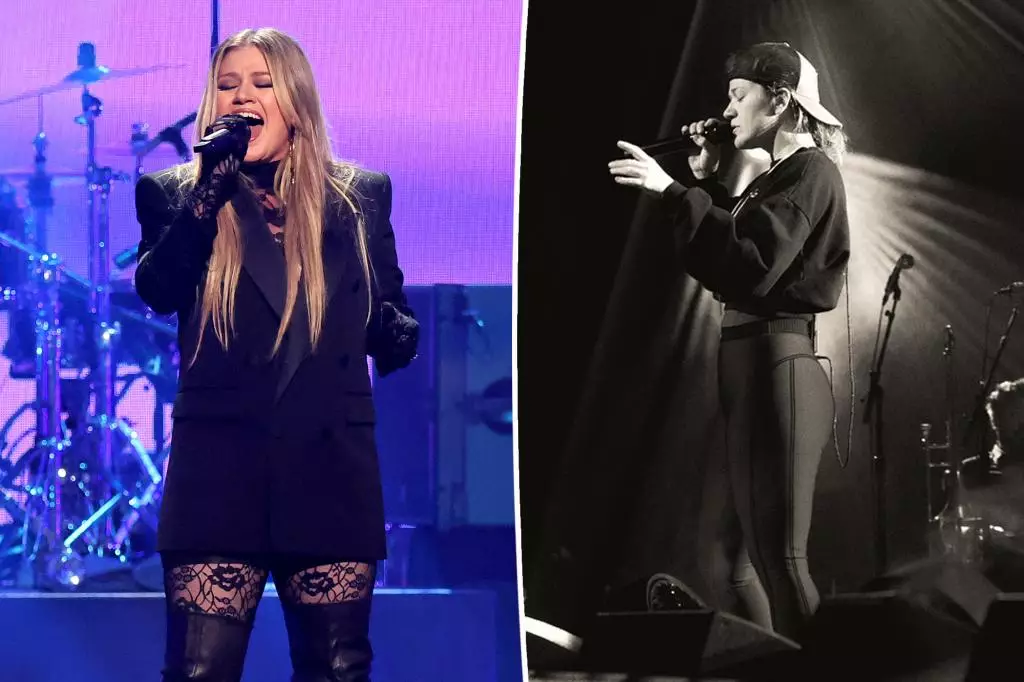In recent headlines, Kelly Clarkson’s abrupt decision to cancel her Las Vegas residency openers has ignited a debate that extends beyond mere disappointment. While fans expressed frustration over the last-minute cancellation, a deeper issue lies in understanding a performer’s physical and mental toll. The singer’s candid explanation about vocal exhaustion reveals a stark reality: artistry demands not just talent but resilience and self-preservation. This event underscores how performers, despite their public images of strength, are often vulnerable to the rigorous demands of their careers. It’s a reminder that behind the flashing lights and roaring crowds, artists grapple with health and well-being—a truth that is too often overlooked in the pursuit of entertainment.
Clarkson’s decision, though met with mixed reactions, ultimately spotlights an important conversation surrounding singer health. Pushing oneself relentlessly for the sake of fans can lead to damaging consequences, yet the expectation for performers to always deliver perfect live shows continues to persist. The incident pushes us to reevaluate our cultural obsession with accessibility and immediate gratification at the expense of artists’ long-term health. The narrative of the “indestructible star” begins to crack open when frequent exhaustion and vocal strain become unavoidable realities. It is imperative that the entertainment industry adopts more sustainable practices, with proper health safeguards and realistic expectations for performers, instead of glorifying endurance at the expense of well-being.
Fans’ Expectations vs. Artists’ Reality: A Necessary Recalibration
The online reactions to Clarkson’s cancellation illustrate a broader dilemma—how do we reconcile our desire for flawless entertainment with the human limitations of the artists we idolize? Many fans express empathy and support, acknowledging that health issues are legitimate reasons to delay or cancel shows. However, others argue for more accountability, calling for policies that protect consumers who travel long distances or spend significant money expecting a concert experience. This tension exposes a fundamental challenge: in the age of instant gratification and digital transparency, fans crave both authenticity and reliability. Clarkson’s candid message about her voice’s condition reflects a growing movement among artists advocating for their health without fear of backlash.
What these responses reveal is a societal shift: admiration for vulnerability and honesty is beginning to replace outdated notions of performer invincibility. Fans who are willing to give Clarkson the grace to recover and return better show a more nuanced understanding of what it truly takes to create live performance magic. Meanwhile, the industry must recognize that cancellations, though disappointing, are sometimes necessary acts of self-care—acts that can ultimately benefit everyone if managed transparently and with respect for all parties involved. The challenge lies in balancing high expectations with compassion, redefining success not solely by sold-out shows but by the sustainability and health of the performers.
The Broader Impact: Industry Change Is Long Overdue
Clarkson’s situation is not isolated; it echoes a larger cultural push toward prioritizing mental and physical health in the entertainment sector. Historically, performers have pushed through conditions that would be unacceptable in most other professions, often at the expense of their health. This pattern fosters a cycle of burnout and short-lived careers, tarnishing the very artistry that is celebrated. Now, more singers and entertainers are speaking out, advocating for better working conditions, insurance policies, and more flexibility in scheduling.
The controversy surrounding Clarkson’s cancellation emphasizes the urgent need for systemic change. Industry stakeholders—promoters, venues, management—must recognize that safeguarding performers’ health is an investment in their longevity, not an inconvenience. Insurance models could be revamped to provide better coverage for last-minute cancellations or health-related closures, easing financial strain on artists. Ultimately, this incident should serve as a catalyst for reform—one where health and authenticity become core values rather than afterthoughts in the relentless pursuit of profit and perfection.
Clarkson’s decision, driven by health considerations, challenges us to rethink our collective expectations of entertainers. It invites a future where artists can prioritize their well-being without fearing professional fallout, fostering a more humane and sustainable entertainment industry. Only then can the magic of live performance be preserved, not at the cost of those who create it, but in concert with their needs and limits.

